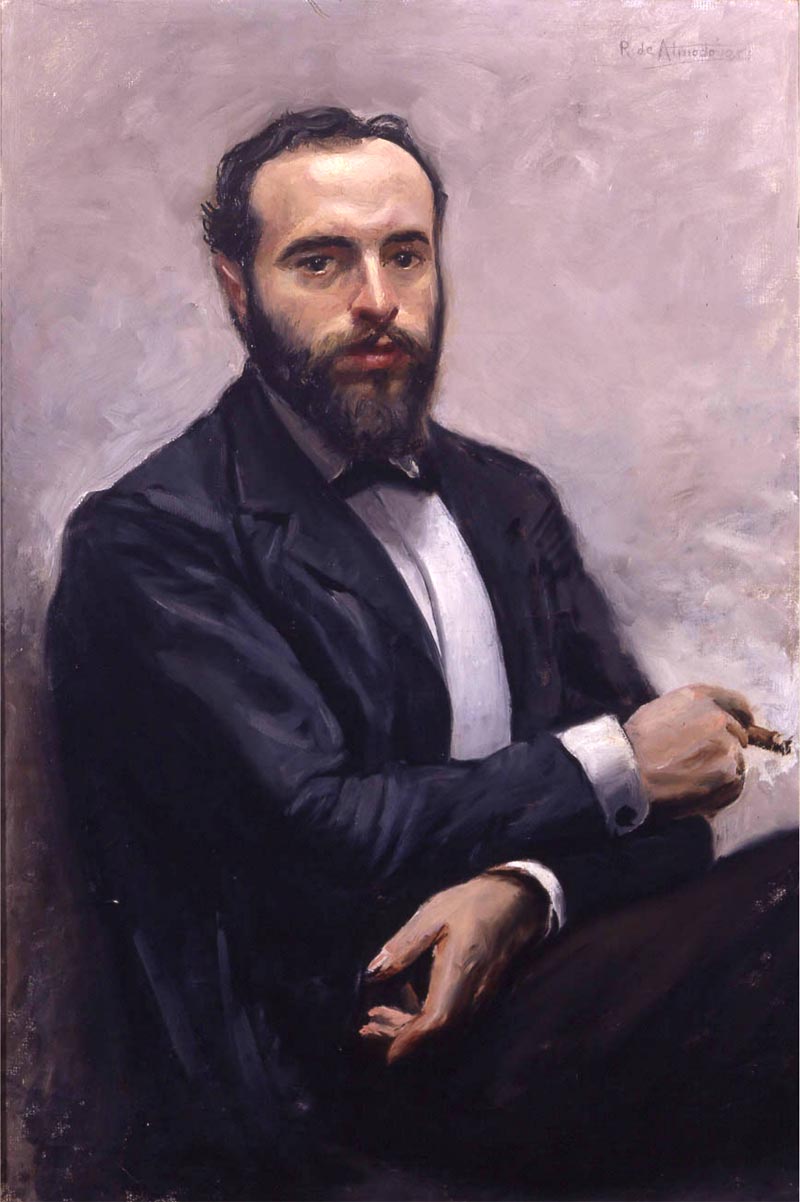In late November of 1898, the Spanish writer Ángel Ganivet, consul at Riga, twice threw himself into the freezing waters of the Dvina (he was fished out the first time, but, perhaps somewhat ungratefully, he jumped right back in, and this time there was nothing doing). He was not yet thirty-three.
 |
| Ganivet, by José Ruiz de Almodóvar |
The very year of his suicide, Ganivet had published (self-published, in fact) an extraordinary book, Los trabajos del infatigable creador Pío Cid, whose main character, Pío Cid, is an eccentric clearly modeled after Ganivet himself. Though Pío Cid is never less than intriguing, he is perhaps not always as witty or brilliant or selfless as his tireless creator Ganivet seems to think he is. For that reason, then, when Judith Ginsberg, in her book on Ganivet, examines the possible reasons for his suicide, the following remarks do not seem out of place:
The persistent association of Pío Cid and Jesus Christ strongly suggests a pathologically grandiose self-image which would be in keeping with Utrillo's impressions of Ganivet when the two of them met in Barcelona in the late summer of 1897. Such an omnipotent self-image would be impossible to maintain and the inability, failure, or perceived refusal of the outside world to support such a self-image has long been associated with suicide attempts in neurotically depressed people.
Pío Cid's self-image (and thus Ganivet's) does indeed seem disproportionately grandiose at times. All the same, on reading Ganivet's delightful work, one also wonders if, in his case, the larger world, by refusing to recognize his brilliance, did not penalize itself most of all. It can be of little comfort to him, of course, but 115 years after he drowned himself in the Dvina Ganivet has found at least one reader, from a country different from his own, for whom translating his work is a delight and a consolation and perhaps even an act of revenge.
